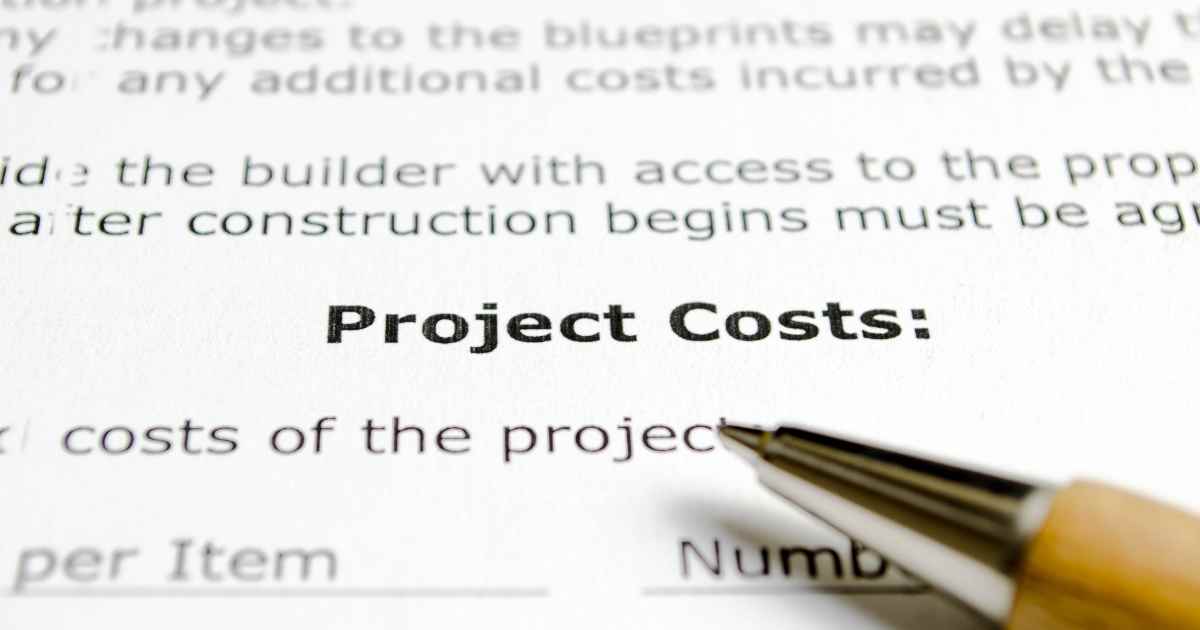As an entrepreneur, the festive season is the best time to take on projects and bring in extra cash. The projects can range from weddings, and graduation parties to festivals. Depending on your business and skills you are probably going to be busy this festive season. One of the things you need to know when taking on these projects is how to cost your project.
A project cost or project estimate is the process of accurately determining the time, cost and resources required for a project. This helps you know how much you stand to gain and helps the person acquiring your services see how much it will cost.
Project estimations are not only for people doing gigs during the festive and the rest of the year, but they are also required when you apply for tenders. For those who want to operate in that way, project estimation is an important skill.
In this article we look at project estimation and how you can do it for yourself.
Why Is Project Estimation Costs Important?
Project estimations are important because businesses use them to make informed decisions regarding the requirements of a project. If you have more than one project, you can do a cost estimation for each one to see which is more financially viable.
In some cases, businesses will hire a project manager to provide cost estimations for the different phases of the project.
Examples of project costs
When estimating the cost of your project, you need to look at the following elements:
- Labour if you need any outside help for the project.
- Resources for things such as tools, additional finances etc (depends on the project).
- Supplies such as equipment, materials etc.
- Structures such as budgets, team members etc.
Outlining the costs in the above categories will help you determine the features of the project, specify everyone’s tasks, have a plan in case of any unforeseen expenses or challenges and provide estimates for any modifications needed for the project.
How to Estimate Costs of a Project
There are many ways to estimate the costs of your project. If it’s something you have done before then you will have an idea of how much it will cost. A new project might require a new method of project estimation.
Some of the popular methods for calculating project costs are:
Analytical Estimation
Analytical estimation is a method used to predict things such as time, cost and resources required for a project. It relies heavily on historical data and analytical estimating to break down the project into smaller components.
Analogous Estimating
Analogous estimating is the process of comparing past projects with current projects in order to estimate the time and cost of the project. This form of estimation is done when you have limited data and current projects. If you have data on your previous projects, you will be able to do a comprehensive analogous estimation.
Three-point Estimation
A three-point estimation includes working out the optimistic, pessimistic and most probable estimations regarding the cost of your project. The calculations done do not account for any unexpected costs during the project.
Parameter Estimating
Parameter estimating includes the calculation of the time each task takes to complete. Once that is done you can multiply the number of hours each task takes by the cost of labour. This enables you to create a cost estimation for every task and that will help you estimate the total cost of the project.
To estimate the cost of your project you can choose any of the above methods. You can choose more than one project especially if you have more than one project.
Steps for Project Estimation
1. Establish the Goal of the Project Estimation
You must consider the details that are necessary for the estimate, who it’s for and the scope. For clients, you must add as many details as possible, if it’s your event then you can brief the team on any resources they are familiar with and brief them further as the project continues.
2. Define the Features of the Project
The description you develop of the project and its features can help guide you about what you need for the project in terms of resources. You can also outline the goal of the project and establish its timeline, risks, flexibility and originality. This will also help you determine what needs to be included or excluded from the project.
3. Create a Project Estimation Strategy
Here is where you select the estimation method that works for you. Research the method in its entirety so that you know how it will help you stay on track as you calculate your project costs. This step is also where you will decide on how you will manage any data collected during the project.
4. Record Your Project Estimation
Make sure you have a comprehensive record of the initial cost estimation and any calculations you may conduct during the different phases of the project. You will share this information with your team to ensure that everyone is on track. Lastly, you will share the estimation with management to get approval for the project.
Now that you have the information you need to conduct your own project cost or estimation, you can get started. With the festive season upon us, this will be a great skill to have when you get gigs and need to provide project costs to clients.
For more information on any events happening this festive season, visit our end-year entrepreneurship event guide.





















Discussion about this post